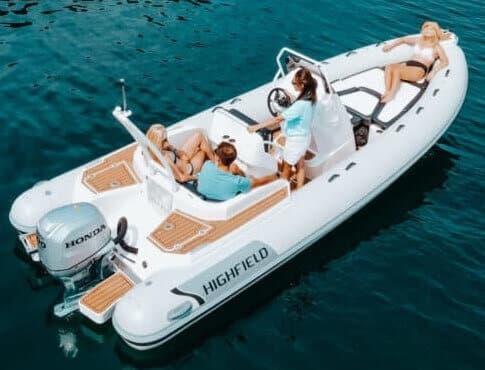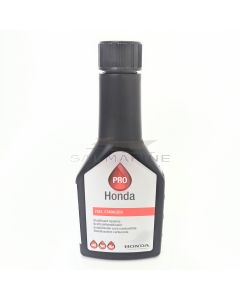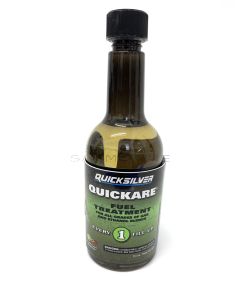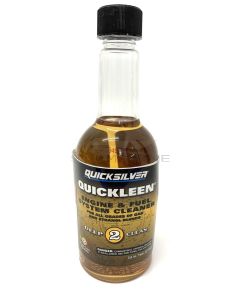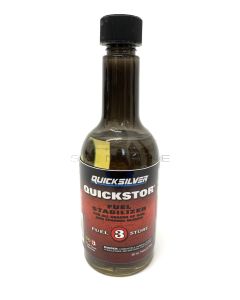Ans - The frequency with which you should use fuel treatment in your boat depends on a few factors, including how often you use your boat, the quality of the fuel, and the type of fuel treatment you're using. SAL Marine offers the most authentic fuel treatment products that will help keep your fuel system clean and prevent the buildup of deposits that can harm your engine.
Fuel Treatments
Outboard Fuel Treatments & Fuel Tank Treatment for Marine Engines and Fuel Tank
SAL Marine is an expert in the marine business industry, and our outboard engine fuel treatment products provide high-quality service to boat parts and accessories. We provide marine engine treatment products which are easy to use and provide great maintenance to your boat parts and vessels.
Outboard fuel treatment, also known as outboard fuel cleaner, means removing grease and leftover oil particles from the engine, fuel injectors, chambers, valves and fuel tanks from inside to outside of a boat. Also, there are outboard fuel treatments available for both gasoline and diesel engines.
Marine fuel additives make the fuel 'clear and bright', separating water from the fuel. These fuel additives for marine engines allow for easier removal of water from the tank and prevent water from entering the engine.
Diesel boats require marine diesel fuel additives & marine engine treatment (as diesel is thicker and less refined than that petrol) to remove the bacteria and sticky, slimy deposits that can cause excessive engine noise and exhaust fumes. Outboard fuel treatment is also used for outboard engine cleaning.
Marine fuel stabilisers are widely known and widely used as preventive marine engine treatments due to their nature. Besides this, a marine fuel stabiliser can also stop the chemical processes that lead to fuel instability and boat breakdown from starting in petroleum fuels. Moreover, the fuel stabiliser also maintains the quality of petroleum fuel while guaranteeing the efficient performance of the boat's engine. As a marine enthusiasts, we suggest that using a fuel stabiliser is the best way to store boats, vehicles or equipment throughout the winter.
How Do Boat Fuel Additives Work?
An outboard engine fuel treatment stops the onset of stability-causing chemical reactions. Moreover, a marine engine treatment also neutralises the ethanol-attracts water from entering the petroleum fuel tank. Additionally, it aids in preventing carburettor clogs caused by watery ethanol gel.
As the name suggests, marine diesel fuel additives add substances, such as system cleaners, lubricants and performance enhancers, to the fuel to accomplish the desired goals. After the outboard fuel treatment, the engine can work up to 3000-5000 miles without any hindrances. This is true and works on both petroleum engines and diesel engines.
Some of the Our best marine diesel fuel additives are:
1. QUICKSILVER QUICKARE OUTBOARD FUEL TANK TREATMENT - 92-8M0079743
2. QUICKSILVER QUICKLEEN ENGINE & FUEL SYSTEM OUTBOARD CLEANER - 92-8M0079744
3. QUICKSILVER QUICKSTOR FUEL TANK STABILISER - 92-8M00797454. MORENDO MARINE DIESEL FUEL ADDITIVE - MOR501
Key Features of a fuel additive for marine engines
Salmarine’s Fuel & fuel tank treatment products are designed to address the issues experienced by boat owners with their engines and fuel systems. Therefore, some important key features of an outboard engine fuel treatment are:
- Designed specifically for boat engines and fuel systems.
- Fights corrosion.
- Maintains clean fuel lines, carburettors, and fuel injectors.
- Enhances the internal components of the engine.
- Winter-formulated fuel stabiliser.
- Long-lasting.
Fuel Treatment Benefits and Drawbacks
The benefits of Marine Fuel Treatment are:
- A fuel treatment or outboard fuel cleaner in a petroleum fuels tank can stop the chemical process that leads to fuel instability & breakdown from starting. It also ensures the performance of the boat engine while the quality of the petroleum fuel is treated.
- Outboard engine cleaner cleans the lubricants in the entire fuel system.
- Reduces long-term engine wear.
- Helps to protect the engine and fuel tanks from corrosion caused by ethanol & water.
- Stabilises the fuel tank for up to 2 years.
The drawbacks of Marine Fuel Treatment are:
- Ineffective at reducing the rate of old gas deterioration.
- Less efficient at restoring polluted or darkened marine fuel to its functional state.
- There is a possibility of detonation and power loss.
Different Types Of Fuel Additive For Marine Engines At SAL Marine:
1. Quicksilver Quickcare Outboard Fuel Tank Treatment
- With all grades of gasoline, you can maximise engine performance.
- Aid in reducing the effects of phase separation, gum and varnish buildup, and corrosion that is caused by ethanol-blended fuel.
- Help in preventing moisture and corrosion issues brought on by non-ethanol fuel.
- Spark plugs, tanks, intake valves, carburettors, and injectors should all be cleaned of any existing varnish and gum deposits.
- Ensure fresh fuel is used between fill-ups.
2. Quicksilver Quickclean Engine & Fuel System Outboard Fuel Cleaner
- Remove carbon buildup from cylinder heads, piston crowns, spark plugs, intake valves, and carburettors as quickly and thoroughly as possible.
- It aids in avoiding piston seize-up and engine knocking.
- Outboard engine cleaner helps Increase spark plug lifespan.
- Use this product with Quicksilver Quickcare- outboard fuel cleaner since this product lacks fuel stabilisers to stop fuel oxidation and breakdown.
3. Quicksilver Quickstor Fuel Tank Stabilise
- Regular and ethanol-blend fuel from oxidising and degrading.
- This fuel tank treatment ensures that the fuel stays fresh for up to a year.
- Avoid corroding fuel systems.
- Helps to prevent varnish and gum from accumulating in fuel tanks, pipes, and tanks.
- Lubricate the carburettors and injectors.
4. Morendo Marine Diesel Fuel Additive
- Reduces power loss caused by injector fouling.
- Cleans nozzles and pump components.
- Reduces the formation of harmful sludges.
- Pump protection with low sulphur fuels.
- Improved starting, reduced smoke and noise.
- Prevents Bacterial & Fungal Growth.
If you are looking for outboard fuel treatment, boat fuel additive or outboard engine cleaner, visit SAL Marine and get the best products at the best prices. We are sure we have everything that you need for your boat engine.
Explore Our Categories For More Boat Chemicals & Oils
Chemicals And Oils - Boat Engine Oils | Paint & Primers | Coolants & Descaler | Grease & Sealants | Valeting & Cleaning | Workshop & Service Products
Frequently Asked Question(FAQ's)
Ans - It is generally not recommended to use multiple boat fuel additives at once, as different additives may contain similar or conflicting chemicals that could react with each other and potentially harm your boat's engine. Instead, it's best to choose a single high-quality marine fuel additive from SAL Marine that meets your specific needs, such as cleaning fuel injectors, stabilizing fuel for storage, or boosting fuel economy.
Ans - It is generally not recommended to use multiple boat fuel additives at once, as different additives may contain similar or conflicting chemicals that could react with each other and potentially harm your boat's engine. Instead, it's best to choose a single high-quality marine fuel additive from SAL Marine that meets your specific needs, such as cleaning fuel injectors, stabilizing fuel for storage, or boosting fuel economy.
Ans- The time frame it takes for a boat fuel treatment to work can vary depending on factors such as the type of treatment used, the condition of the fuel system, and the severity of any existing problems. Some fuel treatments can work quickly, and you may notice engine performance and efficiency improvements after just one use. Other treatments may require several uses before you see significant results. Grab the best marine engine treatment from our online store at the best prices.
Ans - Yes, they can provide benefits for your boat and its engine in certain situations. For example, if you frequently use your boat in saltwater or other harsh marine environments, a fuel treatment can help prevent corrosion and other damage to your fuel system. We provide outboard engine fuel treatment and boat fuel additive as it is extremely beneficial for boat engines.
Ans - Yes, you can put fuel treatment in a 2-stroke engine. Using a fuel treatment in a 2-stroke engine can help keep the fuel system clean and prevent deposits from forming on the spark plugs and other engine components. When choosing a fuel treatment for a 2-stroke boat engine, it's important to select a product that is specifically designed for use in marine environments and these engines. This is because 2-stroke boat engines have different fuel requirements and operate differently than other types of engines.
Ans - When used correctly and according to the manufacturer's instructions, boat fuel additives are generally safe and unlikely to cause damage to your boat engine. However, it is possible to cause damage to your engine or fuel system if you misuse or overuse fuel additives. Also, using a fuel additive that is not compatible with your engine or fuel system could potentially cause damage. Similarly, too much of a fuel additive could clog fuel filters or cause other issues with the fuel system.


 to save as many parts lists for boats and engines as you want. It makes reordering and costing up jobs, quick and easy!
to save as many parts lists for boats and engines as you want. It makes reordering and costing up jobs, quick and easy! 
